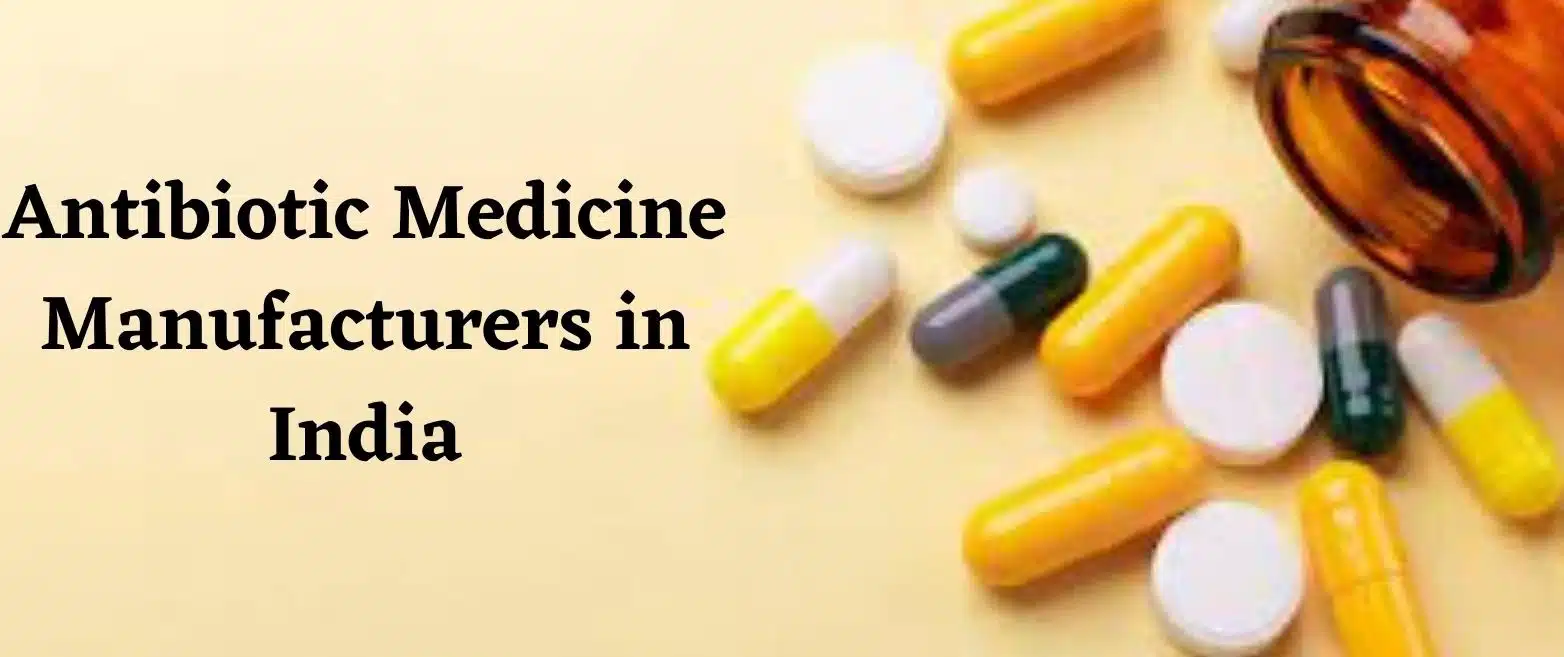Top Antibiotic Medicines for Third-Party Manufacturing

The Expanding Scope of Antibiotic Manufacturing in India
The antibiotic segment is one of the most crucial pillars of the Indian pharmaceutical industry. Millions of prescriptions are written for bacterial infections each year, making antibiotics essential in hospitals, clinics, and retail pharmacies. This consistent demand supports a thriving ecosystem for third-party manufacturing, where pharma companies outsource production to WHO-GMP certified plants while focusing on branding and distribution.
Entrepreneurs prefer the third-party model because it reduces investment risk, provides scalable production, and gives access to advanced formulations without the burden of setting up costly manufacturing infrastructure. Antibiotics maintain strong market presence due to non-stop consumption of tablets, syrups, capsules, and injectables across urban and rural areas.
Key Reasons for Strong Antibiotic Demand
- Antibiotics are prescribed for respiratory, urinary, skin, ear, throat, and gastrointestinal infections, making them essential across multiple healthcare settings.
- These medicines have a high prescription rate in both metro cities and tier-2/tier-3 towns, ensuring steady sales throughout the year.
- Public health programs and hospitals rely on a continuous supply of antibiotics, providing long-term business stability.
- Most antibiotics are affordable, enabling companies to target a broad patient base without compromising on sales volume.
- The availability of multiple dosage forms, including tablets, capsules, syrups, dry powders, and injectables, allows distribution across all age groups.
Driving Factors Behind the Antibiotic Market
- Pollution, urbanization, and lifestyle-related issues have increased bacterial infections, creating consistent demand.
- Post-viral bacterial complications, such as after flu or dengue, increase the need for antibiotics seasonally and year-round.
- Expansion of healthcare infrastructure, including hospitals and diagnostic centers, boosts bulk antibiotic requirements.
- Rising patient awareness and preference for reliable, clinically tested medicines strengthens market demand.
- Growing healthcare access in rural regions ensures antibiotic products reach previously untapped markets.

Why Antibiotics Are Profitable for Third-Party Manufacturing
Pharma companies choose antibiotics due to their stable market demand and predictable growth. Unlike supplements or seasonal medicines, antibiotics are essential prescriptions consumed year-round, ensuring repeat orders and steady revenue.
Advantages of Antibiotics for Pharma Businesses
- Patients complete a full course of antibiotics, generating repeat demand and reliable pharmacy reorders.
- Doctors trust well-known antibiotic molecules with proven clinical outcomes, ensuring consistent prescriptions.
- The pricing flexibility allows companies to achieve high profit margins while catering to different market segments.
- Antibiotics are universally needed, enabling faster market penetration even in smaller towns.
- Availability in multiple dosage forms allows targeting of both adults and children effectively.
- Third-party manufacturers provide ready-to-launch products, allowing brands to enter the market quickly without infrastructure setup.
Why Third-Party Manufacturing Works Best for Antibiotics
- Raw materials for common antibiotics are widely available at moderate costs, making production affordable.
- Manufacturers can scale production efficiently to meet orders from distributors, hospitals, and pharmacies.
- Antibiotics have low market failure risk due to their universal need and steady demand.
- Rural and urban markets both require antibiotics, offering broad geographical sales potential.
- Promotion to doctors is straightforward since antibiotics are trusted, clinically proven medicines.
Popular Antibiotic Categories in India
- Broad-spectrum antibiotics target multiple bacterial strains, increasing prescription rates.
- Cephalosporins are preferred for respiratory, urinary, and soft-tissue infections due to high clinical trust.
- Penicillin derivatives are widely used for common infections and pediatric care, ensuring consistent demand.
- Macrolides treat chest and throat infections effectively while maintaining low side effects.
- Fluoroquinolones are prescribed for complicated bacterial infections, ensuring strong repeat usage.
- Combination therapies tackle multiple infections at once, increasing adoption among healthcare professionals.
Top Antibiotic Medicines for Third-Party Manufacturing
The success of a pharmaceutical business largely depends on selecting the right products for production and distribution. Antibiotics are one of the most reliable categories due to their consistent demand, high doctor trust, and widespread prescription. Choosing the right molecules allows pharma companies to establish a strong brand presence and ensure steady revenue streams. Top antibiotic medicines are not only clinically effective but also commercially viable, offering opportunities for both retail and hospital markets. By partnering with a reputable third-party manufacturer, businesses can access WHO-GMP certified formulations and a wide variety of dosage forms to cater to different patient needs.
Top Antibiotic Medicines for Third-Party Production
- Amoxicillin + Clavulanic Acid: This combination is highly effective for resistant bacterial infections, respiratory infections, and urinary infections, making it a staple prescription.
- Cefixime Tablets & Dry Syrup: Trusted for respiratory tract infections, this cephalosporin enjoys high repeat demand and is suitable for both adults and children.
- Azithromycin 250/500 mg: A short-duration therapy preferred for chest, throat, and skin infections, making it fast-moving in urban and rural pharmacies.
- Ciprofloxacin Tablets: Multi-purpose antibiotic for urinary, respiratory, and gastrointestinal infections, offering strong retail and hospital demand.
- Levofloxacin Tablets: Broad-spectrum antibiotic for respiratory, skin, and urinary infections, frequently purchased by hospitals due to its effectiveness.
- Cefpodoxime Proxetil: Effective for ENT and soft tissue infections, offering stable repeat orders in pediatric and adult markets.
- Cefuroxime Axetil: Premium cephalosporin for severe infections, providing high margins and enhancing brand positioning.
- Ofloxacin + Ornidazole: Combination therapy effective for gastrointestinal infections, food poisoning, and dysentery, widely prescribed in rural areas.
- Amikacin Injection: Essential hospital-use antibiotic for severe infections in ICUs, ensuring bulk purchase by hospitals and clinics.
- Doxycycline Capsules: Versatile antibiotic used for respiratory infections, skin conditions, and other bacterial infections, maintaining high year-round demand.
Choosing the Right Manufacturer & Roadmap for Antibiotic Business
Selecting a reliable third-party manufacturer is crucial as antibiotics require strict quality standards. Deviation in production or quality can affect treatment outcomes and damage brand credibility.
Key Criteria to Select a Manufacturer
- WHO-GMP certification ensures production follows global quality and regulatory standards.
- Advanced production facilities with modern machinery maintain consistency, sterility, and reliability.
- Experienced formulation teams of pharmacists and chemists handle complex antibiotic production accurately.
- Manufacturers should provide timely delivery and sufficient production capacity to meet bulk orders.
- Transparent documentation, including Certificates of Analysis, batch reports, and stability data, is essential for client trust.
- Capability to produce multiple dosage forms (tablets, capsules, syrups, injectables) is necessary to diversify the product portfolio.
Strategic Product Launch Plan
- Launch 4–6 fast-moving antibiotics initially to establish market presence.
- Include pediatric formulations such as syrups to cater to children and widen customer reach.
- Introduce premium cephalosporins gradually to expand the portfolio after building brand awareness.
- Launch injectables cautiously, primarily targeting hospitals and clinics once retail sales are stable.
Marketing & Distribution Strategy
- Build strong relationships with physicians through medical representatives and product detailing.
- Offer competitive distributor margins to encourage bulk purchases and long-term collaboration.
- Maintain consistent stock availability in pharmacies and hospitals to prevent gaps in supply.
- Invest in high-quality packaging to increase consumer confidence and improve brand visibility.
Long-Term Growth Tips
- Gradually add new antibiotic molecules based on market research and doctor recommendations.
- Continuously monitor product quality to prevent complaints, recalls, or negative reputation.
- Track competitor pricing and demand trends to adjust production and marketing strategies.
- Expand into new districts, states, and rural markets to increase market coverage.
- Educate healthcare professionals and customers about responsible antibiotic use to strengthen trust and brand loyalty.
By following this structured approach and partnering with a reliable manufacturer, pharmaceutical companies can establish a profitable, sustainable antibiotic brand with consistent demand and long-term growth potential.
Explore Related Blogs
Stay informed with our curated selection of similar blogs, offering expert perspectives on pharmaceutical trends, regulatory updates, and product innovations.
These articles are designed to help healthcare professionals, partners, and businesses stay ahead in an ever-evolving industry. Explore more to deepen your knowledge and make informed decisions.